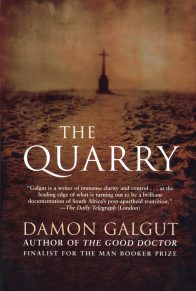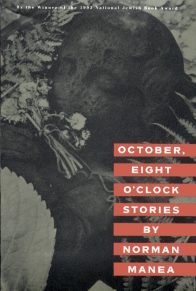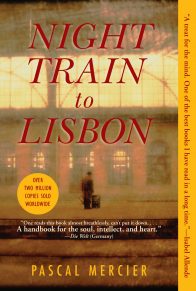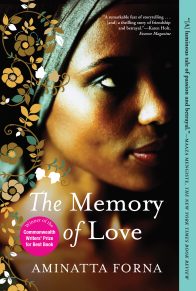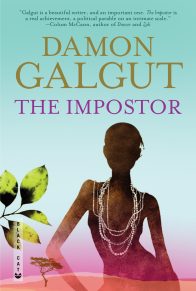“
“I know.”
“You know…?”
He seemed amazed that we should be expecting him, though he’d been sending faxes for days already, announcing his arrival.
“We’re sharing a room,” I told him. “Let me take you over.”
The room was in a separate wing. We had to cross an open space of ground, close to the parking lot. When he came in he must have walked this way, but now he looked at the path through the long grass, the ragged trees overhead dropping their burden of leaves, as if he’d never seen them before.
We went down the long passage to the room. I’d lived and slept alone in here until today. Two beds, a cupboard, a small carpet, a print on one wall, a mirror, a green sofa, a low coffee table made of synthetic wood, a lamp. It was all basic standard issue. The few occupied rooms all looked the same, as in some featureless bleak hotel. The only trace of individuality was in the configuration of the furniture, but I’d never bothered to shift mine around till two days ago, when an extra bed had been brought in. I also hadn’t added anything. There was no personality in the ugly, austere furniture; against this neutral backdrop, even a piece of cloth would have been revealing.
“You can take that bed,” I said. “There’s space in the cupboard. The bathroom’s through that door.”
“Oh. Yes. Okay.” But he still didn’t put down his bag.
I’d only heard two weeks before that I would have to share a room. Dr Ngema had called me in. I wasn’t happy, but I didn’t refuse. And in the days that followed I came around, in spite of myself, to the idea of sharing. It might not be so bad. We might get on well, it might be good to have company, my life here could be pleasantly different. So in a way I started looking forward with curiosity to this change. And before he arrived I did a few things to make him welcome. I put the new bed under the window and made it up with fresh linen. I cleared a few shelves in the cupboard. I swept and cleaned, which is something I don’t do very often.
But now that he was standing here I could see, through his eyes, how invisible that effort was. The room was ugly and bare. And Laurence Waters didn’t look to me like the person I’d pictured in my head. I don’t know what I’d imagined, but it wasn’t this bland, biscuit-coloured young man, almost a boy still, who was at last putting his suitcase down.
He took his glasses off and rubbed them on his sleeve. He put them on again and said wearily, “I don’t understand.”
“What?”
“This whole place.”
“The hospital?”
“Not just the hospital. I mean…” He waved a hand to indicate the world out there. He meant the town outside the hospital walls.
“You asked to come here.”
“But I didn’t know that it would be like this. Why?” he said with sudden intensity. “I don’t understand.”
“We can talk about it later. But I’m on duty now, I have to go back to the office.”
“I must see Dr Ngema,” he said abruptly. ‘she’s expecting me.”
‘don’t worry about that now. You can do it in the morning. No hurry.”
“What should I do now?”
“Whatever you like. Unpack, settle in. Or come and sit with me. I’ll be finished in a couple of hours.”
I left him alone and went back. He was shocked and depressed. I understood that; I’d felt it myself when I first arrived. You came expecting one thing and were met by something else completely.
You came expecting a busy modern hospital – rural maybe, and small, but full of activity – in a town where things were happening. This was the capital of what used to be one of the homelands, so whatever the morality of the politics that gave rise to it, you expected a place full of administration and movement, people coming and going. And when you’d turned off the main route to the border and were coming in on the one minor road that led here, it might still look – when you saw the place from a distance – like what you’d expected. There was the main street, leading to the centre where the fountain and the statue stood, the shop-fronts and pavements and streetlights, and all the buildings beyond. It looked neat and calibrated and exact. Not a bad place to be.
And then you arrived and you saw. Maybe the first clue was a disturbing detail; a crack that ran through an otherwise pristine wall, or a set of broken windows in an office you passed. Or the fact that the fountain was dry and full of old sand at the bottom. And you slowed down, looking around you with vague anxiety, and suddenly it all came into clear focus. The weeds in the joints of the pavements and bricks, the grass growing at places in the street, the fused lamps and the empty shops behind their blank glass fronts and the mildew and damp and blistered paint and the marks of rain on every surface and the slow tumbling down of solid structures, sometimes grain by grain, sometimes in pieces. And you were not sure any more of where you were.
And there were no people. That was the last thing you noticed, though you realized then that it was the first thing to give you that uneasy hollow feeling: the place was deserted. There was, yes, a car cruising slowly down a back road, an official uniform or two ambling along a pavement, and maybe a figure slouching on a footpath through an overgrown plot of land, but mostly the space was empty. Uninhabited. No human chaos, no movement.
A ghost town.
“It’s like something terrible happened here,” Laurence said. “That’s how it feels.”
“Ja, but the opposite is true. Nothing has ever happened here. Nothing ever will. That’s the problem.”
“But then how…?”
“How what?”
“Nothing. Just how.”
He meant, how did it come to be here at all? And that was the real question. This was not a town that had sprung up naturally for the normal human reasons – a river in a dry area, say, or a discovery of gold, some kind of historical event. It was a town that had been conceived and planned on paper, by evil bureaucrats in a city far away, who had probably never even been here. Here is our homeland, they said, tracing an outline on a map, now where should its capital be? Why not here, in the middle? They made an “X” with a red pen and all felt very satisfied with themselves, then sent for the state architects to draw up plans.
So the bewilderment that Laurence Waters felt wasn’t unusual. I’d been through it myself. And so I knew that the feeling would pass. In a week or two the bewilderment would give way to something else: frustration maybe, or resentment, anger. And then that would turn into resignation. And after
a couple of months Laurence would be suffering through his sentence here, like the rest of us, or else plotting a way to get out.
“But where are they all?” he said, talking more to the ceiling than to me.
“Who?”
“The people.”
“Out there,” I said. “Where they live.”
This was hours later in my room – our room – that night. I had just put out the light and was lying there, trying to sleep, when his voice came out of the dark.
“But why do they live out there? Why aren’t they here?”
“What’s there for them here?” I said.
“Everything. I saw the countryside when I was driving. There’s nothing out there. No hotels, shops, restaurants, cinemas… Nothing.”
“They don’t need all that.”
“What about the hospital? Don’t they need that?”
I sat up on one elbow. He was smoking a cigarette and I could see the red glow rising and falling. He was on his back, looking up.
“Laurence,” I said. “Understand one thing. This isn’t a real hospital. It’s a joke. When you were driving here, do you remember the last town you passed, an hour back? That’s where the real hospital is. That’s where people go when they’re sick. They don’t come here. There’s nothing here. You’re in the wrong place.”
“I don’t believe that.”
“You’d better believe it.”
The red coal hung still for a moment, then rose and fell, rose and fell. “But people get injured, people get sick. Don’t they need help?”
“What do you think this place means to them? It’s where the army came from. It’s where their puppet dictator lived. They hate this place.”
“You mean politics,” he said. “But that’s all past now. It doesn’t matter any more.”
“The past has only just happened. It’s not past yet.”
“I don’t care about that. I’m a doctor.”
I lay and watched him for a while. After a few minutes he stubbed out the cigarette on the windowsill and threw the butt out of the window. Then he said one or two words I couldn’t hear, made a gesture with his hands and sighed and went to sleep. It was almost instantaneous. He went limp and I could hear the regular sound of his breathing.
But I couldn’t sleep. It had been years and years since I’d had to spend a night in the same room with anybody else. And I remembered then – almost incongruously, because he was nothing to me – how there had been a time, long before, when the idea of having somebody sleeping close to me in the dark was a consolation and comfort. I couldn’t think of anything better. And now this other breathing body made me tense and watchful and somehow angry, so that it took hours before I was tired enough to close my eyes.
Copyright ” 2003 by Damon Galgut. Reprinted with permission from Grove Atlantic, Inc. All rights reserved.




